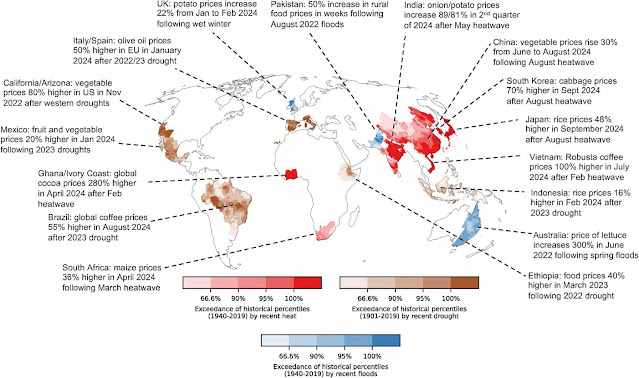Wind NIMBYs spew Trumpish nonsense
Steve Ahlquist
 |
Europe already gets 20% of its energy supply from
wind energy |
On July 23, the Rhode Island Energy Facilities
Siting Board (EFSB) held a public hearing on the SouthCoast
Wind project at Portsmouth Middle School. The SouthCoast
Wind project is in Massachusetts waters and has been approved to build the
turbines, but a critical part of the project involves Rhode Island. To get the
wind power from the turbines to the regional
About 20 miles of electric cables must pass through Rhode
Island waters and Aquidneck Island to reach the transmission
system at Brayton Point in Somerset.
Proponents and opponents of wind energy filled the middle
school auditorium, and the three-member EFSB listened for over four hours.
Twenty-seven people spoke in favor of the project, noting the benefits of
cheaper, more environmentally safe energy and the jobs the construction of the
project will bring. Twenty-six people spoke against the project, most
seemingly regurgitating
the talking points of fossil fuel-backed right-wing think tanks.
With so many people testifying, a comprehensive overview
would be time-consuming. So instead, I chose, as best I can, a representative
testimony from each side, starting with wind energy opponent and Portsmouth
resident Sal Carceller:
“I’m a resident of Portsmouth. Not only am I a resident of
Portsmouth, with a view of the Sakonnet River. I’m blessed where I
live. It’s one of the most beautiful places in the Northeast. I’ve traveled
throughout the world. I spent considerable time at McCorrie Point with
my family, friends, and others. I even spend evenings there.
“I have a question for the siting board. Have you visited
any sites along the Sakkonet in Portsmouth? You don’t have to answer, but I
will make a suggestion. Please go to McCorrie Point so that you understand what
you’re about to approve. I don’t have an opinion, but I can tell you that it
doesn’t make sense. You are not crossing a river just to cross it. You’re
traversing that river from its mouth to Brayton Point, the entire
river, a class A, class one waterway, the only one in Rhode Island, and one of
the few. It is imperative that we get this correct.
“What’s going to happen is - I’m not a scientist, I’m a
statistical analyst by trade. I’ve done data science and analytics, so I look
at numbers. I’m going to ask the siting board to consider this: Would you ever
approve a project that you knew was destined for failure and would never be
used? You don’t have to answer that, but ask yourself while sitting at McCorrie
Point, and then let’s talk about where we are today.
“Why is offshore wind no longer favored under the current
administration? They were voted in, whether you like it or not. I’m going to go
through a couple of bullet points:
“One. Executive Order halts offshore wind expansion. In
January of 2025, the President of the United States signed an Executive Order1 that withdrew the entire outer continental
shelf from the future of offshore wind leasing. Not only did he do that, he
paused all new and renewable lease permits and rights of way for wind energy on
federal lands and waters. Next, he’s also initiated a review of the existing
leases with potential cancellation/modifications.
“Two. New federal oversight delays projects. All wind and
solar projects on federal lands and waters must now receive personal approval
from the Interior Secretary, Doug Burgum. This change adds significant
regulatory delays and uncertainty to project timelines. I’m just telling you
what the lay of the land is, compared to when we first started these
conversations. High costs from tariffs and subsidy rollbacks - tariffs on
imported steel, aluminum, and turbine components have increased project costs.
That’s going to turn into increased electric rates.
“I’m no fool. New tax legislation, signed by the President,
is rolling back clean energy tax credits from the Inflation Reduction Act,
making it financially harder for offshore wind developers.
“Now let’s talk about what has been done to the industry:
industry pullbacks and writedowns. Ecuador recorded a $955 million write-down
on its U.S. offshore wind portfolio. Citing administration policy changes,
they’re divesting. Shell withdrew from the Atlantic Shores project off New
Jersey, and this one. Projects like SouthCoast Wind have been delayed by years,
losing hundreds of millions of expected value. SouthCoast wind knows it’s in
trouble. They already said they are likely going to delay by four years.
“I only have a few more points—impact on the state climate
goals. States like New York, New Jersey, Massachusetts, and Rhode Island rely
heavily on offshore wind to meet their emission targets. The targets were made
under a different administration. I don’t know if the targets are right or
wrong. What if we’re wrong? We’re going to ruin a river. That’s going to delay
timelines, create potential energy supply gaps, and pose challenges to meet the
climate mandates.
“We’ve heard that from our president’s mouth. He favors
fossil fuels and nuclear over renewables. He has repeatedly criticized wind
energy as visually unappealing, environmentally harmful, and economically
inefficient.












.jpg)












